Filter by
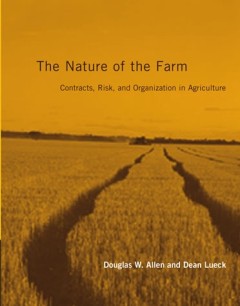
The nature of the farm :contracts, risk, and organization in agriculture
The Nature of the Farm is a theoretical and empirical study of contracts and organization in agriculture based on the transaction cost framework. Transaction costs are important in agriculture because nature (for example, seasonality, weather, pests) plays such a critical role in determining output and limiting the ability of farmers to specialize. The book develops specific models and tests th…
- Edition
- -
- ISBN/ISSN
- 9780262267014
- Collation
- 1 online resource (viii, 258 pages)
- Series Title
- -
- Call Number
- -
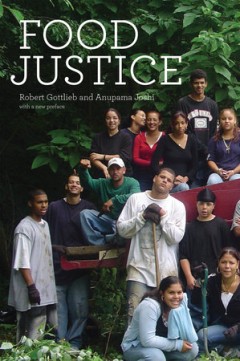
Food justice /
The story of how the emerging food justice movement is seeking to transform the American food system from seed to table. In today's food system, farm workers face difficult and hazardous conditions, low-income neighborhoods lack supermarkets but abound in fast-food restaurants and liquor stores, food products emphasize convenience rather than wholesomeness, and the international reach of Americ…
- Edition
- -
- ISBN/ISSN
- -
- Collation
- 1 online resource (vii, 290 pages, 12 unnumbered pages of plates) : illustrations
- Series Title
- -
- Call Number
- -
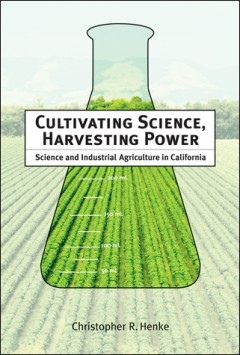
Cultivating science, harvesting power : Science and Industrial Agriculture in…
Christopher R. Henke reveals how agricultural scientists and growers in California have cooperated - and struggled - in shaping the state's multi-billion-dollar farm industry.
- Edition
- -
- ISBN/ISSN
- -
- Collation
- 1 online resource (xi, 226 pages) :
- Series Title
- -
- Call Number
- -

Fascist pigs :technoscientific organisms and the history of fascism
How the breeding of new animals and plants was central to fascist regimes in Italy, Portugal, and Germany and to their imperial expansion.OCLC-licensed vendor bibliographic record.
- Edition
- -
- ISBN/ISSN
- 9780262335706
- Collation
- 1 online resource.
- Series Title
- -
- Call Number
- -
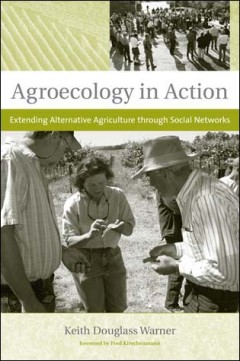
Agroecology in action :extending alternative agriculture through social netwo…
Detailed case studies of agrecological initiatives show how growers, scientists, agricultural organizations, and public agencies can form partnerships to develop innovative, ecologically based techniques for reducing reliance on agrochemicals.OCLC-licensed vendor bibliographic record.
- Edition
- -
- ISBN/ISSN
- 9780262285810
- Collation
- 1 online resource (xiv, 273 pages) :illustrations, maps.
- Series Title
- -
- Call Number
- -
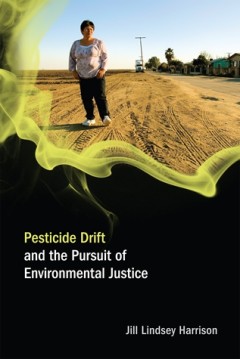
Pesticide drift and the pursuit of environmental justice
"In this book, Jill Lindsey Harrison considers political conflicts over pesticide drift in California, using them to illuminate the broader problem and its potential solutions. The fact that pesticide pollution and illnesses associated with it disproportionately affect the poor and the powerless raises questions of environmental justice (and political injustice). Despite California's impressive…
- Edition
- -
- ISBN/ISSN
- 9780262298766
- Collation
- 1 online resource (xvii, 277 pages) :illustrations, maps.
- Series Title
- -
- Call Number
- -

Certifying China :the rise and limits of transnational sustainability governa…
"Using original data and mixed methods, the book offers a comprehensive study on the spread of transnational sustainability certification in China's agri-food supply chains"--OCLC-licensed vendor bibliographic record.
- Edition
- -
- ISBN/ISSN
- 9780262369619
- Collation
- 1 online resource.
- Series Title
- -
- Call Number
- -

The convergent evolution of agriculture in humans and insects
"An edited collection about the evolution of agriculture in humans and insects"--OCLC-licensed vendor bibliographic record.
- Edition
- -
- ISBN/ISSN
- 0262367572
- Collation
- 1 online resource.
- Series Title
- -
- Call Number
- -

Eat, cook, grow :mixing human-computer interactions with human-food interacti…
"Our contemporary concerns about food range from food security to agricultural sustainability to getting dinner on the table for family and friends. This book investigates food issues as they intersect with participatory Internet culture--blogs, wikis, online photo- and video-sharing platforms, and social networks--in efforts to bring about a healthy, socially inclusive, and sustainable food fu…
- Edition
- -
- ISBN/ISSN
- 9780262026857
- Collation
- 1 online resource (x, 303 pages) :illustrations
- Series Title
- -
- Call Number
- -

Food justice
The story of how the emerging food justice movement is seeking to transform the American food system from seed to table. In today's food system, farm workers face difficult and hazardous conditions, low-income neighborhoods lack supermarkets but abound in fast-food restaurants and liquor stores, food products emphasize convenience rather than wholesomeness, and the international reach of Americ…
- Edition
- -
- ISBN/ISSN
- 9780262289443
- Collation
- 1 online resource (vii, 290 pages, 12 unnumbered pages of plates) :illustrations.
- Series Title
- -
- Call Number
- -
 Computer Science, Information & General Works
Computer Science, Information & General Works  Philosophy & Psychology
Philosophy & Psychology  Religion
Religion  Social Sciences
Social Sciences  Language
Language  Pure Science
Pure Science  Applied Sciences
Applied Sciences  Art & Recreation
Art & Recreation  Literature
Literature  History & Geography
History & Geography